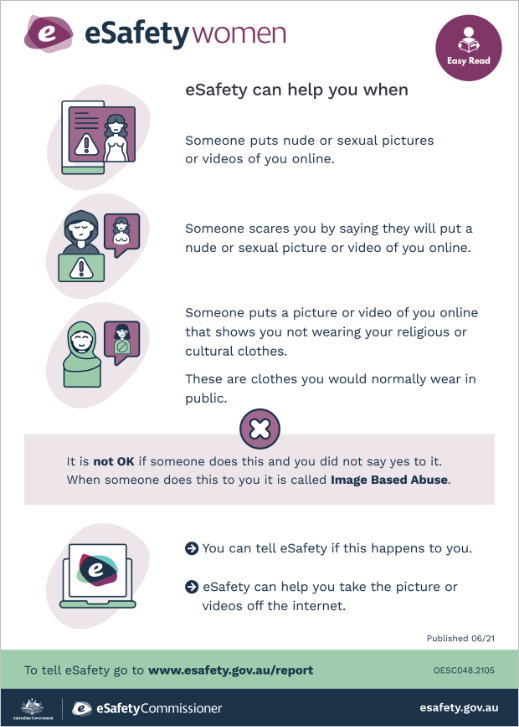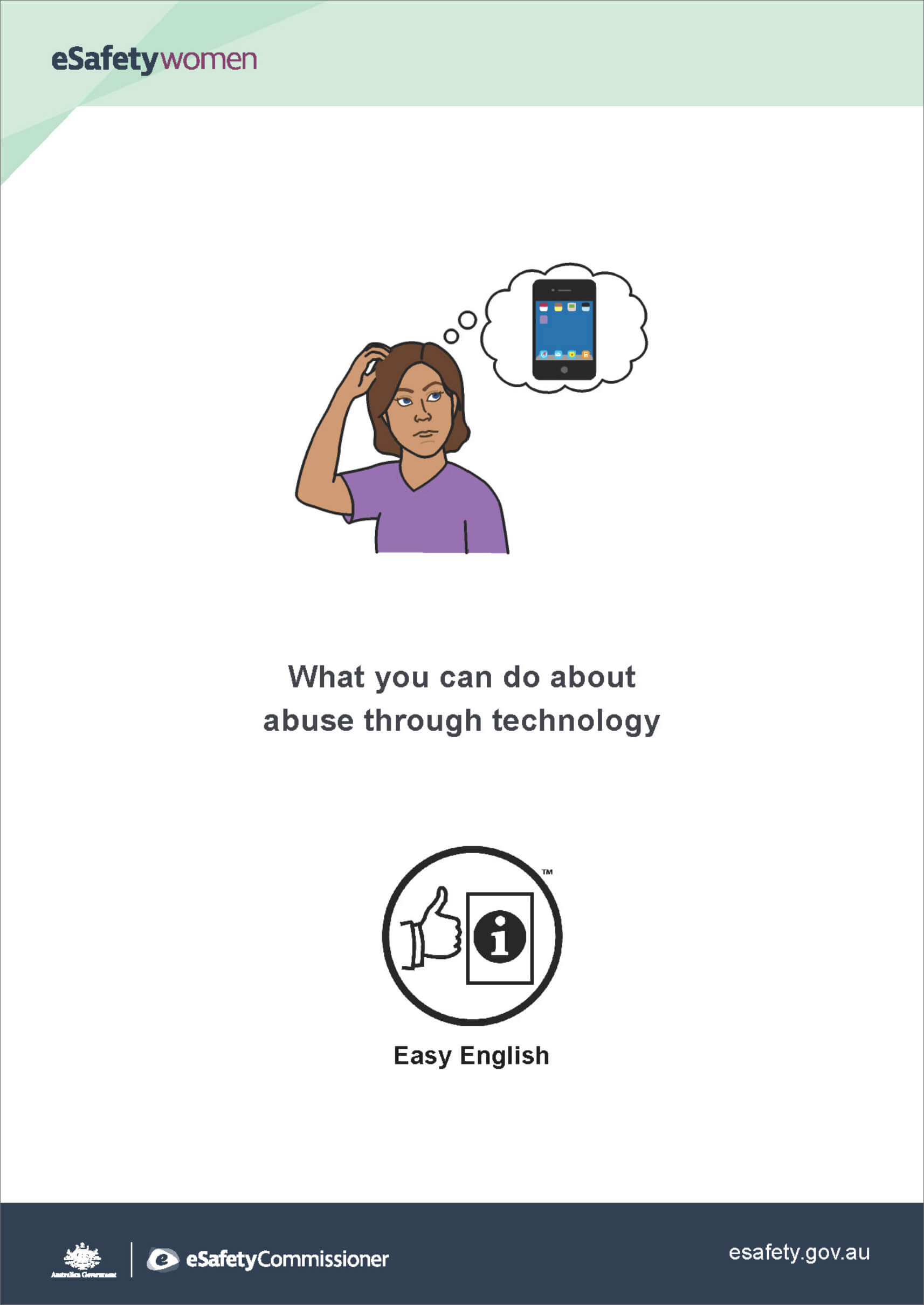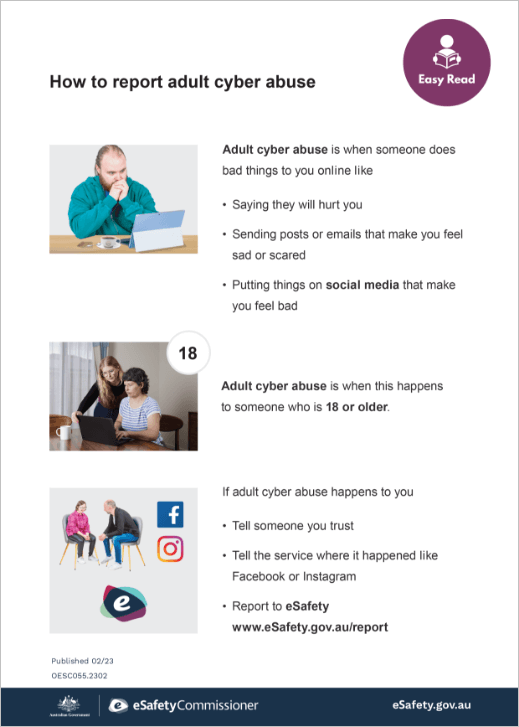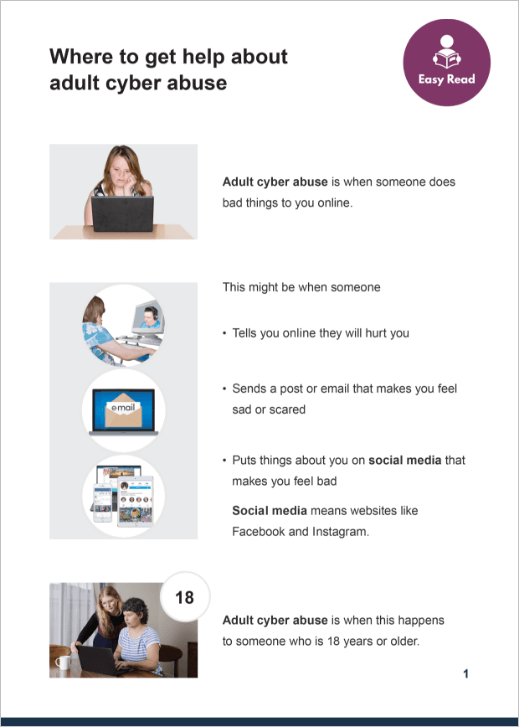Resources for disability workers
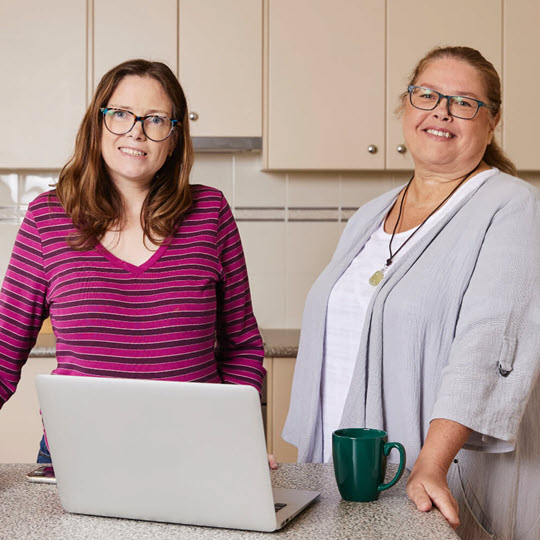
eSafety provides resources and professional development for disability workforces and frontline workers in the domestic and family violence sector.
eSafety training helps disability specialists who support clients with intellectual or cognitive disability to learn about tech abuse and build awareness around support pathways.
On this page:
Professional development sessions
eSafety offers professional development sessions for disability workers supporting women living with intellectual or cognitive disability who may be at risk of, or experiencing, technology-facilitated abuse. This training will help you to:
- identify technology-facilitated abuse
- build knowledge about how to seek support
- access eSafety resources.
Visit our professional development page for domestic, family and sexual violence workers for more information about other webinars, including an introduction to tech-based abuse and eSafety's reporting functions.
You can find eSafety's full list of professional learning programs on our Community education and training page, including training for those working with children and young people.
Videos

Personal stories
Other resources
Conversation starters
This set of conversation starters helps support workers have carefully guided conversations with clients who may be at risk of technology-facilitated abuse. You can download and print them on single-sided A4 paper then use them with or without the accompanying images.
General posters
Download, print and display these posters in common areas such as service provider waiting rooms.
Easy Read resources about image-based abuse
This Easy Read poster and booklet help people find out what to do if someone shares or threatens to share intimate images or videos of someone without their consent.
The poster and booklet can be downloaded and printed from the following links.
Easy Read booklet about abuse that uses digital technology
This booklet explains technology-facilitated abuse and how to get help if it happens. The booklet can be downloaded and printed from the following link.
Easy Read resources about adult cyber abuse
This Easy Read poster and booklet explain what to do if someone experiences adult cyber abuse and how to report it. Click on the links to download and print copies.
Research and evaluation
eSafety has conducted research into the experiences and impacts of technology-facilitated abuse on Australian women living with intellectual or cognitive disability.
The research will help inform education and prevention initiatives for disability workers and frontline domestic and family violence workers, as well as the women they support. The insights will also contribute to ongoing resource and policy development.
eSafety’s professional development training and resources for disability workforces have been independently evaluated. Participants were satisfied with the training program content and delivery. The majority reported they were extremely or very likely to recommend the training to colleagues.
Further information
eSafety has online safety advice and resources for people living with disability.
Stay safe
If you are feeling unsafe right now, call the police on Triple Zero (000) or contact 1800RESPECT (1800 737 732). Remember your safety is important. If an abusive person learns that you are seeking resources and information, their abusive behaviour may get worse. Learn more and connect with support.
Last updated: 16/12/2024
